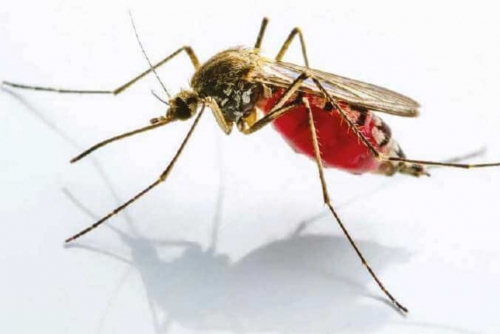The recent Muharraq Municipal Council meeting in Bahrain highlighted the growing concern over the increase in mosquitoes in the area. Dr. Mohammed AbdulMajeed Al Awadhi, the Director of the Public Health Directorate at the Ministry of Health, attributed the issue to rising sea levels and global warming, stating that Bahrain is home to six types of mosquitoes. The main breeding grounds for mosquitoes are thriving gardens and standing water left in plant pots and garden containers. The focus of efforts should be on targeting mosquito larvae rather than the adult population.
The current approach to spraying pesticides was criticized by Municipal Councillor Abdulqader Al Sayed, who suggested a more efficient street-wide strategy rather than handling complaints on a house-to-house basis. Council Vice Chairman Saleh Bu Hazza proposed using WhatsApp as a tool for residents to report mosquito issues directly to the Ministry. Councillor Fadhil Al Oud questioned the effectiveness of current mosquito control methods and emphasized the need for updated strategies to combat the increasing challenge posed by mosquitoes.
There is a call for greater public involvement in preventing mosquitoes from breeding by raising awareness and getting residents to support the government’s efforts by removing stagnant water from their surroundings. It was agreed at the meeting that controlling the mosquito problem requires updated strategies, better coordination, and public involvement. The Ministry of Health has outlined efforts to address the issue, including a public hotline, new treatments, and plans to sterilize affected areas. The global trend of increasing mosquitoes due to climate change is a challenge that requires collective action to mitigate its impact.
In conclusion, the increasing mosquito problem in Bahrain is a result of climate change and the thriving gardens in the area, providing ideal breeding grounds for mosquitoes. Efforts should be focused on destroying mosquito larvae rather than targeting adult populations. The current approach to spraying pesticides was criticized for its inefficiency, with calls for a more effective street-wide strategy. There is a need for updated strategies and better coordination to combat the growing challenge posed by mosquitoes. Public involvement and awareness are key in preventing mosquitoes from breeding, and it is essential to engage residents in supporting government efforts to control the issue. Overall, a collective effort is required to address the global trend of increasing mosquitoes driven by climate change.










